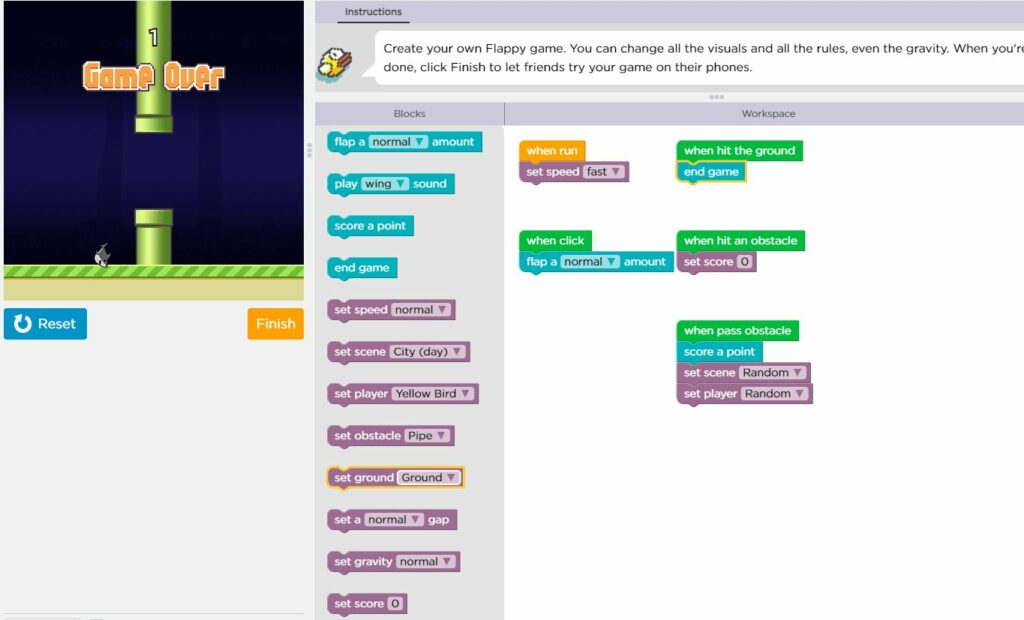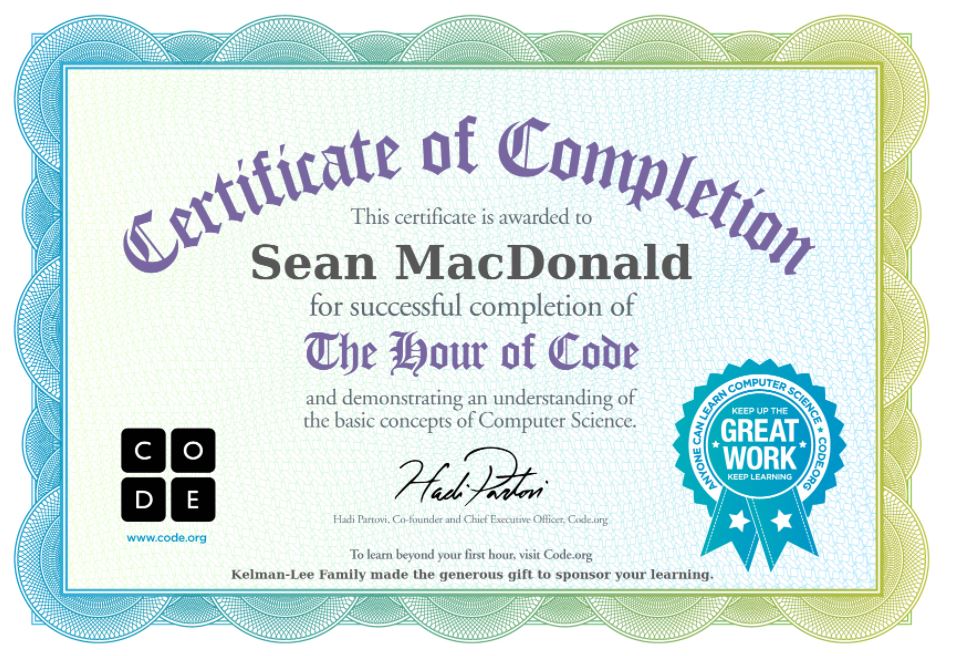Scratch Project:
Scratch Game: Code.org


Can computation thinking help learners become better problem solvers?
Computational learning can definitely help learners become better problem solvers. Computational learning can help students with problem solving so much that it is actually recognized as a key skill set by school districts. Computational thinking is broken into four groups which makes it much easier to see how it would help students become better problem solvers. These four aspects are abstraction, algorithms, decomposition, and pattern recognition. Abstraction helps students see a problem and its solutions in great deal. Algorithms helps students think about tasks as a series of steps. Decomposition will help students understand that solving a large problem will involve breaking it down into smaller problems. Pattern recognition helps students appreciate that a new problem is likely to be related to other problems the learner has already solved. All of these factors address problem solving skills for students and fostering these aspects will undoubtedly help students problem solving.
Resources:
Computational Thinking – District Learning Team (sd61.bc.ca)
(170) Computational Thinking and problem solving, by Miles Berry – YouTube
Are there any non-math-related opportunities for integrating coding and computational thinking into your grade level’s curriculum?
Coding and computational thinking can be integrated into many subjects other than in mathematics. These include things like English and story writing being integrated into a coding activity. This can be done on Scratch and highlights how using coding can help students understand dialogue.
Resources:
Scratch – Imagine, Program, Share (mit.edu)
(170) Computational Thinking – YouTube
Could computation thinking or coding turn math abstractions into concrete form for students with their inquiries at the grade level you’d like to teach?
I am completely confident that computational thinking and coding can turn abstract math concepts into concrete ideas for students of all grade levels. It can be done through games which use computational thinking or several other forms. I will include links of resources which could help students understand math concepts by making them much more concrete and real for them.
Resources:
Primo Toys Cubetto Playset Coding Toy, Science – Amazon Canada
No Fear Coding: Computational Thinking Across the K-5 Curriculum : Williams, Heidi: Amazon.ca: Books
Hello Ruby: Adventures in Coding: Liukas, Linda: 9781250065001: Books – Amazon.ca





